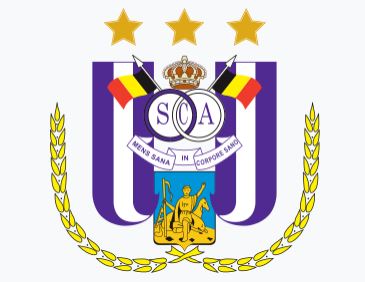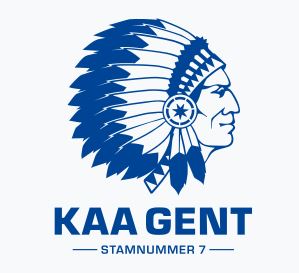JUPILER PRO LEAGUE BELGIUM
How did Belgian football originate?
The first season of the Belgian national league started in 1895. This was initiated by the Union Belge des Sociétés de Sports Athlétiques (UBSSA), an umbrella national organization that organized several sports, including athletics, cycling and football.
At the start of the competition, there were only seven clubs in the highest series, including four from Brussels. At that time, there was no fixed system of promotion and demotion.
In 1898 an extra series was started in which some East and West Flemish clubs could play. The winner of the Flemish series and the winner of the “normal” series ultimately played for the national title.
In 1900 all clubs played for the first time in one series. With the exception of three seasons, this formula was subsequently retained.
The ever-growing professionalism of Belgian football in the 1970s led in 1974 to the foundation of the Liga Beroepsvoetbal, a non-profit organization that was later renamed the Profliga and later on as the Pro League. This non-profit organization protects the interests of Belgian professional football clubs and organizes the Pro League, the highest division in Belgian football.
The Jupiler Pro league
Since August 2008, it has been referred to as the Jupiler Pro League, making the Jupiler beer brewery (main sponsor since 1993-1994) more prominent. The current sponsor of the Jupiler Pro League is BWIN
The best teams in this competition
Regarding the total number of national titles since the national competition start in 1895, RSC Anderlecht is the record holder with 34. Club Brugge (16), Union Sint-Gillis (11) and Standard Liège (10) follow from the currently active clubs. From these teams, Union Saint-Gilles dropped out of top football from the 1970s onwards and even ended up in the fourth division. In 2021-2022 it will return to the highest division for the first time in nearly half a century.
If we base ourselves on the five final rankings from 2015-2016 up to and including the final score of 2020-2021 before the finish of the play-offs, the dominating team is Club Brugge with 8 as the average final place. The following five are matted together in a group of equal competitors (with the average finish in the last six years behind their name): Standard Luik (16), KRC Genk (17), AA Gent (18), Royal Antwerp FC (18) and RSC Anderlecht (20).
In the last ten seasons, Club Brugge and Anderlecht each won the championship 4 times, AA Gent and KRC Genk each 1 time.
RSC Anderlecht
- 34x national champion
- 9x Belgian Cup
- 13x Belgian Supercup
- In Europe, Anderlecht reached the final of the European Cup II 4 times, where they won twice. She also reached the final of the Europa League twice, winning 1x.
Club Brugge
- 18x national champion
- 11x Belgian Cup
- 15x Belgian Supercup
- Club Brugge appeared twice as a finalist in the European competition. In 1976 it lost the UEFA Europa League against Liverpool. In 1978 it lost the final of the European Cup I against the same Liverpool
AA Ghent
- 1x national champion
- 3x Cup of Belgium
- 1x Belgian Super Cup
KRC Genk
- 4x national champion
- 5x Belgian Cup (most recently 2020-2021)
- 2x Belgian Super Cup
Standard Liège
- 8x national champion
- 8x Belgian Cup
- 4x Belgian Supercup
- Standard was 1x losing finalist of the European Cup II.
Royal Antwerp FC
- 4x national champion
- 3x Cup of Belgium
- 1x Belgian Super Cup
- Antwerp FC’s best European result is the final of the European Cup II in 1992-1993, which it lost.
How does the competition work?
The Covid-19 pandemic has caused a lot of chaos in the organization of both the regular season and the play-offs.
In the Jupiler Pro League, 16 teams normally compete against each other, but at the end of July 2020 it was decided that Waasland-Beveren should not be relegated because the First Division A competition could not be fully completed. The General Assembly of the Pro League therefore decided that in 2020-2021 and 2021-2022, 1A had to be played with 18 teams and 1B with 8 teams. The play-offs were also reformed. Play-off 1 and play-off 2 have also been renamed as Champions play-off and Europe play-off.
The 18 Jupiler Pro League teams first play 34 games against each other in a regular competition.
After this regular competition, the play-offs will be completed, with the four highest ranked clubs playing against each other twice in the Champions play-off. If the numbers 4 and 5 have the same number of points in the final standings of the regular competition, the number of wins and possibly also the goal difference and even further better performances are decisive.
The winner of the Champions play-off is the national champion.
At the start of the Champions play-off, the number of points that the participating teams totaled in the regular competition is halved and rounded up. The teams therefore do not start again from zero points.
In the Europe play-off, the numbers 5 to 8 compete in one group. The winner of this Europa League play-off will play barrages against the number 4 of the Champions play-off for the last European ticket.
Belgium has 5 European tickets, which are distributed as follows:
– the winner of the Champions play-off plays the Champions League
– the number 2 of the Champions play-off will play the qualifying round of the Champions League
– the number 3 of the Champions play-off will play the last preliminary round of the newly established UEFA Conference League
– the winner of the barrage match between the number 4 of the Champions play-off and the winner of the Europa League play-off will play the second qualifying round of the newly established UEFA Conference League (this barrage match will not be played as the cup winner in the Champions play -off or if the cup finalists are both in this play-off, as Belgium has 5 European tickets and in these two scenarios the 4 participants in the Champions play-off are all certain of a European ticket)
– the winner of the Belgian Cup plays the last preliminary round of the Europa League
The club that becomes last in the regular 1A final classification is relegated directly to 1B and is replaced by the champion of 1B. The penultimate in the 1A final score comes out in a barrage match (back and forth) against the second of the 1B competition. The winner of this game will play in 1A next season.
Both the league and the play-offs are played according to the three-point system: 3 points for a win, 1 point for a draw and 0 for a loss.
If two teams finish in the same place at the end of the season, the number of wins will count first and then the goal difference. After play-off 1, in case of equality of points, the half point that may have been rounded up is first deducted. If there is still equality of points, the final classification of the regular season is decisive.
Cup of Belgium
The Belgian Cup has existed since 1908, but was not organized annually without interruption until 1963-1964.
Any A-team of a club affiliated with the RBFA can participate in the Belgian Cup. The clubs of the four national levels must participate in the cup. The higher the class, the later the moment when it occurs. The clubs of the highest class only start from the 1 / 16th finals.
Clubs from the provincial series also participate in the first round, although they are not simply assured of participation. Usually, each province selects the clubs that made it furthest in the provincial cup competition and supplements them with a number of clubs from the first provincial.
Since 1979, the cup winner and the national champion have played for the Supercup on the field of the national champion. If a club won both the championship and the cup (ie “the double” succeeded), it will play against the losing cup finalist. Club Brugge is the record holder with 17 Supercups, followed closely by Anderlecht.
Extra information
– Before the start of the 1993-1994 season, the Jupiler brewery succeeded the French car manufacturer Peugeot as main sponsor of the highest division. From the 1998-1999 season, the first division was sponsored by the Jupiler Liga (Ligue Jupiler), a name that was exchanged in 2001 for the English-language variant Jupiler League. In August 2008, the Profliga changed its name to Pro League and the league was renamed the Jupiler Pro League. This also distinguished the Belgian league from the Dutch Jupiler League.
– Top scorers in the highest series of the Belgian national league since 1895 are Jules Van Craen (Lierse SK) and Arthur Ceuleers (Beerschot AC) with 41 goals in 1942-1943. Since 2004-2005, this is Paul Onuachu, who had scored 29 times in the 2020-2021 at the end of the regular season.
– The fastest goal ever in Belgian professional football was scored in 2021 by Dante Vanzeir (Union Saint-Gilles) in 1B after 7 seconds. He thus took the record from Victor Osimhen (Charleroi SC), who scored one second less quickly in 2019 in 1A.













